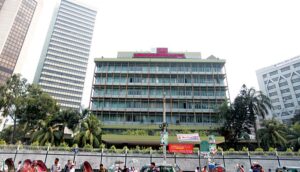 Bangladesh Bank has handed over control of the sensitive database of the Credit Information Bureau to banks’ branches, which experts have decried as a perilous step towards destabilising the country’s already fragile financial sector.
Bangladesh Bank has handed over control of the sensitive database of the Credit Information Bureau to banks’ branches, which experts have decried as a perilous step towards destabilising the country’s already fragile financial sector.
They suspect that this decision may have been influenced by a desire to facilitate loan defaulters participating in the upcoming general election in January.
BB, in a letter on September 13, said that officials of banks and non-banking financial institutions’ head offices as well as branch offices could upload or update the loan information of a borrower whenever they needed it, without prior approval of the central bank.
BB spokesperson and executive director Mezbaul Haque told New Age that BB took the decision to make the process fully online and ease its workload. He said that BB would monitor the database and any changes made by any branch official.
If desired, officials of branches scattered across the country can now gain access to the CIB with the decision of the central bank.
They will have the authority to make any changes to information, and central bank approval will not be required for it after this letter, Bangladesh Bank officials clarified.
The CIB had been a crucial tool for Bangladesh Bank to bring defaulters to book, but with the letter, this power has now been handed to branch-level officials.
The security and integrity of the CIB are now in question, as the once tightly regulated access to the database is now open to numerous officials, banking experts said.
Previously, only two authorised officials at a bank’s head office could upload credit information, with changes requiring central bank permission.
Now, according to banking experts, the floodgates have been opened, as any person may directly or indirectly get access to the data of any person on the server.
As there is data of thousands of borrowers on the CIB server, it will be quite difficult for BB to trace any kind of misuse or data manipulation by any branch officials, they fear.
To unearth any kind of manipulation in data, BB has to go for an inspection at a branch office, which will create a procedural hazard and require heavy manpower and time, they pointed out.
Ahsan H Mansur, the executive director of Policy Research Institute of Bangladesh, has highlighted a concerning potential for manipulation and abuse of borrower’s data following this power shift.
He also pointed out that there was a distinct possibility of temporarily altering data and reverting it back to its original status after achieving illegal objectives.
Mansur warned that this decision had the potential to backfire, leading to devastating consequences in the financial sector.
He suggested that the decision might have been taken to enable loan defaulters to illegally alter their status and gain eligibility for election participation.
He also noted that many defaulters in the past pursued banks and BB to change their loan status ahead of the election. ‘There is no reason for the scenario to be different this time ahead of the election.’
To mitigate the risks associated with this decision, Mansur proposed limiting access to a select group of bank officials.
He emphasised the need for substantial penalties for any form of data manipulation.
Anu Muhammad, who teaches economics at Jahangirnagar University, told New Age that the decision might be linked to facilitating defaulters’ participation in elections.
‘The decision may be taken under the influence of bank owners and influential figures to allow data manipulation,’ he said.
‘The central bank is potentially becoming an ineffective institution,’ he added, raising questions about its independence and ability to serve as a reliable regulator.
According to the BB website, the Credit Information Bureau (CIB) was set up at BB on August 18, 1992, with the objective of minimising the extent of default loans and maintaining a risk-free lending procedure in the banking industry.
The function of CIB under BB is to update and correct the credit information of borrowers according to the demands of banks and NBFIs.
It also provides default information on bank loans of candidates who participate in national and local elections to the election commission whenever they have been sought.
BB spokesman Mezbaul denied any link of the latest decision to the upcoming election.
According to Bangladesh Bank data, default loans soared to Tk 1,56,039 crore at the end of June 2023 from Tk 1,31,620 crore in March and Tk 1,20,656 crore at the end of December 2022.
The total distressed assets, a combination of default loans, rescheduled loans, and written-off loans, in the country’s banking sector, reached Tk 3,77,922 crore, according to the central bank’s Financial Stability Report, 2022.
BB officials said the decision to give branches access to the CIB report was made following a request from the Association of Bankers, Bangladesh.
ABB chairman Selim RF Hussain refused to elaborate on the matter when approached.
‘This is a new process, and it will take more time to establish,’ he said.
Some bankers, however, feared that the decision would create political pressure on them to deliberately alter the CIB report and grant loans to ineligible customers.
New Age









